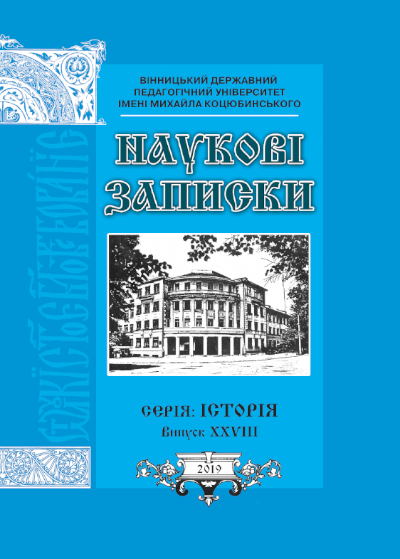Abstract
The institutionalization of the history of everyday life, on the West and in the post-Soviet states, in particular in Ukraine, took place during historical breakthroughs when the dynamics of social transformations destroyed existing concepts of understanding of historico-political reality and the interpretation of accumulated data.
In this article the main directions of the study of everyday life in the Western philosophical and historical thought, transformation of conceptions and their transformation were analyzed, which made it possible to expand the range of historical views about its nature. Thus, more attention was paid to the following philosophical and historical trends: pessimistic, phenomenological, existential, pragmatic and instrumental, hermeneutic and semantic, and the concept of social formation of P. Sztompka. Thus, in the work of G. Simmel, the pessimistic understanding of everyday life summarizes the work of philosophers from the time of the Renaissance and up to the beginning of the XX century. Representatives of phenomenology offer alternative way of understanding of everyday life: they see it as a separate, different from other forms, the existence of human reality in the role of universal meaning with its unique features. Representatives of the pragmatic school (Ch. Peirce and W. James) understand everyday life activities as a set of meaningful and consistent human actions for achieving a certain goal. J. Dewey agrees with them, however, at the same time he complicates their model of understanding human actions with its unpredictability, formed by an unlimited number of probabilistic factors and conditions. Special role in the study of everyday life was given to existentialists, who interpret everyday life not only as the form of routine repetitive processes, but also as feelings, failures and passions: death, shame, fear, love, etc. The representative of the Frankfurt school, E. Fromm, in his work, "To Have or To Be?" reveals the cross-cultural differences of understanding of everyday life in different parts of the world. Instead, hermeneutics suggests to consider everyday life through the prism of interactions between generations, and P. Sztompka proposes to systematize existing knowledge of everyday life as a subject of the "third science".




